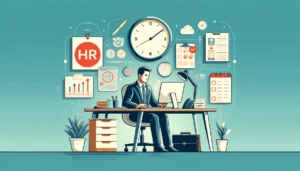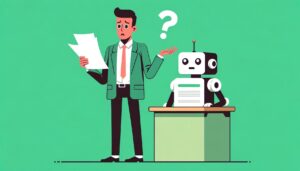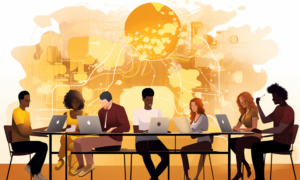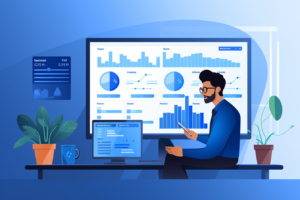Will 2020 be the year you’re hired by AI?
- 4 Min Read
Technological advancements have taken their toll on the work landscape. However, could Artificial Intelligence ever replace the role of recruitment teams and agencies?
- Author: Martin Linstrom
- Date published: Aug 14, 2019
- Categories

AI is rapidly changing the way recruiters and HR professionals find top talent. Martin Linstrom, Managing Director UK&I, IPsoft, looks at how new technologies, such as cognitive AI, can allow recruiters to create meaningful connections and engagements with candidates.
Artificial Intelligence (AI) is a transformative technology that is redefining how enterprises around the world do business. Not only do AI technologies automate routine transactional tasks, but they are increasingly capable of executing cognitive tasks related to decision making. This powerful combination of capabilities can be particularly useful in assisting recruiters with assembling and refining lists of potential candidates while creating meaningful engagements with prospective and future employees.
AI solutions add cognitive capabilities to recruiting, human capital management (HCM) and productivity tools. Cognitive technologies can empower a recruiter to perform actions through a single interface, which can be accessed via a conversational UI (e.g., via Amelia, the digital colleague from IPsoft). The result is a faster recruitment and onboarding process. This has a substantial impact on a company’s overall workforce productivity, and a business’ ability to grow and succeed.
In traditional HR environments, a company’s internal recruiter must login to a system and identify the characteristics of ideal job candidates. With cognitive AI, an HR recruiter can simply “tell” a system what they need using plain language, such as, “I’m looking for a compliance officer with at least five years of experience.” The cognitive intelligence of the system will be able to detect the speaker’s intent. More advanced AI systems will even generate relevant qualifying questions to further refine the search, asking, “Would you like to search only local candidates, those in the United Kingdom, or worldwide?”
Once the recruiter’s task has been identified, the AI system will independently conduct a search through various candidate databases and job sites. Today’s most advanced cognitive systems can tap into the power of Machine Learning (ML) to anticipate recruitment needs without any additional input. The system already knows if the role requires an advanced degree, what language proficiencies are required, and even what the average salary for any specific position.
The AI system can automatically create a personalised folder for each potential candidate including all publicly available information (e.g., location, CVs, LinkedIn profiles, social media accounts, personal blogs, etc.), which can be used to identify A-level candidates before outreach begins.
AI-Guided Candidate Engagement
AI allows recruiters to easily and seamlessly initiate outreach through an email or LinkedIn message. The recruiter doesn’t need to open their email client or LinkedIn account. The recruiter can tell the AI system to draft a letter to all candidates based on a pre-approved template. That communication will be sent directly to applicants via an API integration, asking, “Please reach out to each candidate to schedule a phone interview.”
The AI system will monitor when each candidate responds and proactively notify the recruiter to ensure timely communications. If desired, the AI system could issue pre-interview questions to pre-emptively eliminate any potential hires that will not be a match. For example, it could enquire about the candidate’s salary expectations or if they are willing to relocate. Recruiters could take advantage of the AI’s omnichannel conversational interface (voice, web, social media, and email) to communicate with potential candidates through those channels. The digital colleague facilitates secure uploads of relevant documentation before any interviews, such resumes, proof of education credentials, or examples of relevant work.
Once the recruiter and candidate have agreed to move forward, the recruiter needs to only say, “Please schedule phone interviews,” and the AI system automates a scheduling protocol with designated job seekers. The system then contacts candidates through various channels to supply available days and times for interviews. Calendar invites are sent once they select a preference.
As AI continues to evolve, we’re no doubt going to see more HR professionals using omnichannel, cognitive AI solutions with Natural Language Understanding (NLU) to initiate candidate searches, refine search lists, and automate the interview and hiring processes in 2020 and beyond. When AI automates recruitment, other team members can spend time addressing more complex or unique HR needs, such as developing new employee engagement programmes. This collectively means that the recruitment process is accelerated, the HR department is running more efficiently, and that the business can bring aboard necessary people in a timely and intelligent manner.








